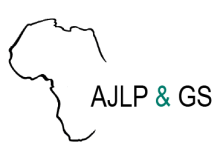Resource information
With most of the world population living in cities, there is an increasing complexity that is accompanying this process. In addition to the growing number of agents interfering in the planning process and in cities evolution, it is important to note that until today urban policy fails to understand its dynamics. Complexity sciences offers an open system methodology to approach urban systems. However, it is not a recent trend, but it has taken time to be part of the urban planning process.Complexity sciences are based on a wide range of approaches that aim to reflect back our understanding of the world. In this paper we intend to set the grounds for discussion about a new emerging city science based on complexity sciences methods.Context and backgroundThis paper will explore the contribution of complexity sciences in city sciences. It starts by defining complexity sciences and tracing the evolution of urban theories until nowadays. It argues that a new science of cities based on complexity is required to understand urban systems and be able to guide urban policy choices. In fact complexity sciences applied to urban studies has challenged many misconceptions and generated counterintuitive assumptions that has helped build a new understanding of cities dynamicsGoal and Objectives:This contribution is aimed at setting a common ground for urban planning professionals and academics about complexity sciences to set a debate on the importance of opening cities to complexity sciences.Methodology:In this paper we review the evolution of urban planning theories and trends chronologically and identify the tendency towards complexity. We then define complexity sciences based on reviewing main contributions in the field and end by presenting examples and applications of complexity sciences in understanding urban phenomena.Results:Major findings include the eminence of shifting our approach to urban planning from a reductionist point of view to a transdisciplinary approach that is based on system thinking and oriented towards complexity sciences.


